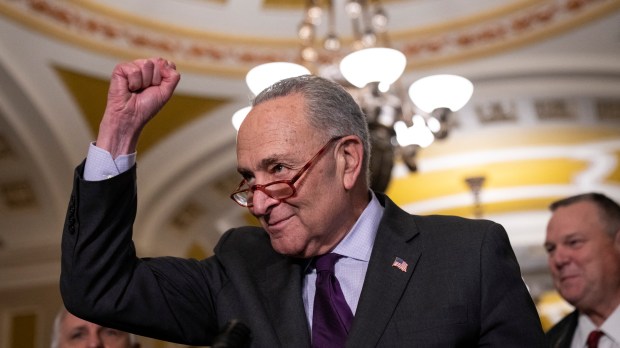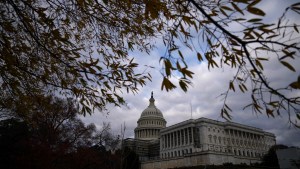Lenten Campaign 2025
This content is free of charge, as are all our articles.
Support us with a donation that is tax-deductible and enable us to continue to reach millions of readers.
The United States Senate voted to enact the so-called Respect for Marriage Act, a bill that codifies the US Supreme Court’s 2015 Obergefell v. Hodges ruling legalizing same-sex marriage nationwide.
In addition to overturning the Defense of Marriage Act, the Respect for Marriage Act would require each state to recognize another state’s legal same-sex or interracial marriage.
The 61-36 vote Tuesday afternoon included the support of 12 Republicans. The bill, to which a bipartisan panel added certain amendments meant to address religious and conscience concerns, now goes back to the House of Representatives, which passed it in June but now must vote on the amended version before it’s sent to President Biden’s desk.
In a statement Tuesday, Biden said the Senate’s approval reaffirmed “a fundamental truth: Love is love, and Americans should have the right to marry the person they love.”
Rejecting timeless truths
Two of the Catholic president’s pastors had a different view, though. New York Cardinal Timothy M. Dolan, Chairman of the United States Conference of Catholic Bishops’ Committee for Religious Liberty, and Bishop Robert Barron, chairman of the USCCB Committee on Laity, Marriage, Family Life and Youth, wrote on November 23 that the bill’s “rejection of timeless truths about marriage is evident on its face and in its purpose. It would also betray our country’s commitment to the fundamental right of religious liberty.”
If passed, the RFMA will put the ministries of the Catholic Church, people of faith, and other Americans who uphold a traditional meaning of marriage “at greater risk of government discrimination,” said Cardinal Dolan and Bishop Barron.
The House is expected to pass the bill before the end of the year – possibly as soon as next week, CNN reported.
The 12 Republicans who voted for the Respect for Marriage Act were Roy Blunt of Missouri; Richard M. Burr and Thom Tillis, both of North Carolina; Shelley Moore Capito of West Virginia; Susan Collins of Maine; Joni Ernst of Iowa; Cynthia Lummis of Wyoming; Lisa Murkowski and Dan Sullivan, both of Alaska; Rob Portman of Ohio; Mitt Romney of Utah; and Todd Young of Indiana.
Sen. Mike Lee of Utah was one of many Republicans who voted no. In a column published on Monday, he argued that the religious liberty protections added to the bill are still “inadequate to address many of the gravest risks posed by this bill, particularly those threatening the tax-exempt status of religious non-profits.”
“Under the RFMA’s current language, many religious schools, faith-based organizations, and other non-profit entities adhering to traditional views of marriage would be at risk of losing tax-exempt status and access to a wide range of federal programs,” Lee wrote. “Many small businesses would also be affected. For example, wedding vendors (including kosher caterers) would be subjected to endless lawsuits and harassment based solely on their beliefs.”


